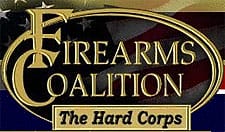Citizen Heroes Snared in Foolish Gun Restrictions
By Jeff Knox

Manassas, VA –-(Ammoland.com)- With a decision expected from the Supreme Court later this month, the importance of the McDonald case challenging Chicago’s handgun ban was brought into stark relief last week when an 80-year old Chicago resident used a handgun to stop a violent home intruder.
Reports indicate that the intruder broke in through a back window of the octogenarian’s home in the early hours of May 26 and then fired on the homeowner who promptly returned fire, killing the intruder. Police and prosecutors said the shooting appeared to be justified and that no charges would be filed in the slaying, but there was some question as to whether the homeowner – the crime victim in this case – might be charged for possessing a handgun in his home, a violation of Chicago’s strict handgun ban.
Luckily for the elderly homeowner, Illinois passed a law a few years ago barring prosecution of persons for violating local handgun bans when their violation comes to light through successfully using their “illegal guns” to defend themselves and their families from violent attack. That law was passed in response to public outcry when a homeowner in Wilmette, a Chicago suburb, was charged with illegal gun possession after shooting a burglar in his home. It is worth noting that Senator Barack H. Obama twice voted against this bill.
Of course, this leaves residents with a tough question: whom do they fear more, the police or criminals?
The Supreme Court is expected to strike down Chicago’s ban when they release their decision in the case of McDonald v. Chicago. That decision is scheduled to be announced toward the end of this month and answers the question whether the Second Amendment restricts states and municipalities from enacting harsh gun laws. It is likely that there will never be a clear and complete definition from the courts as to exactly what restrictions are acceptable and what are not and at this point there is very little jurisprudence on that subject so Chicago will doubtlessly respond by implementing some less comprehensive, but equally onerous restrictions once their total ban is rejected. Expect the wrangling over what is and what is not an infringement of “the right of the people to keep and bear arms” to be bouncing through the courts for at least the next two or three decades.
Meanwhile, almost 500 miles to the southwest of Chicago in Omaha, Nebraska – another city plagued by gang violence and ill-conceived firearms restrictions – a former security guard and competitive shooter was leaving his neighborhood Walgreen’s when two men wearing ski-masks, one wielding a sawed-off Remington 870 12 gauge shotgun, burst into the store and began threatening customers and employees. Without hesitation the man drew his licensed and registered handgun from the waistband of his pants and shot the attacker brandishing the shotgun who immediately turned and fled the store, collapsing and dying outside. The other would-be robber ran up an aisle and tried to hide but was apprehended by the armed patron and held for police.
Again police and prosecutors declared the shooting justifiable (one of his bullets actually traveled down the barrel of the shotgun lodging in the action – there could be no better proof that he was being threatened). As a reward, the hero received a citation for illegally carrying a concealed firearm. Even though the man was licensed by the city to carry the gun, and the gun was registered with police, he did not have a Nebraska concealed carry permit and since he had the gun tucked into his waistband rather than in a belt holster he was cited for a violation of open carry rules.
The police warned the citizen that he should take precautions for his personal safety since his name, picture, home address, and place of employment had been prominently featured in news reports and he killed a known gang member whose death the gangs might wish to avenge. This after confiscating his gun as evidence in the shooting. The Nebraska Firearms Association stepped in and offered a monetary reward – the price of a new Smith & Wesson .40 caliber auto – but Omaha police refused to register the new gun.
Why? He has an open citation for carrying concealed without a permit!
We’d be interested to know how the Omaha city government believes their registration law is working. No doubt the sawed-off 870 the dead perpetrator used was duly registered and its owner properly permitted to carry it into the Walgreen’s that night.
More information about Omaha’s miscarriage of justice can be found in the Nebraska section of www.GunVoter.org.
Both of these cases highlight the fact that “gun control” laws have no effect on criminals. No gun control law – not a ban, not registration, not a permit system – can have any useful effect on any criminal use of a gun. The only people gun laws impact are the very people to whom those laws should not apply: the law-abiding, the responsible, the productive citizens.
It’s obvious that Chicago and Omaha want to accomplish something with their gun laws. But their goal sure isn’t stopping violent crime.
About:
The Firearms Coalition is a loose-knit coalition of individual Second Amendment activists, clubs and civil rights organizations. Founded by Neal Knox in 1984, the organization provides support to grassroots activists in the form of education, analysis of current issues, and with a historical perspective of the gun rights movement. The Firearms Coalition is a project of Neal Knox Associates, Manassas, VA. Visit: www.FirearmsCoalition.org
